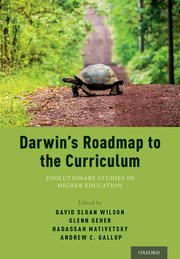Knowledge synthesis
Synthesizing not just relevant data, but also theories and perspectives from across contexts or traditions of knowledge production.
Czaczkes, T.J. (2022) Advanced cognition in ants. Myrmecological News.
Interest in the advanced cognitive abilities of insects has grown rapidly over the past decades. However, most studies have taken place on a handful of model organisms: fruit flies, honey bees, and bumblebees. Ants are in many ways ideal models for the study of cognition, offering a wide range of ecologies, often coupled with ease of training and maintenance. This review aims to collate the often disparate research on advanced cognition in ants.
Czaczkes, T.J. (2022) Advanced cognition in ants. Myrmecological News. Weiterlesen »
Rehfeldt, R. A., Tyndall, I., & Belisle, J. (2021). Music as a Cultural Inheritance System: A Contextual-Behavioral Model of Symbolism, Meaning, and the Value of Music. Behavior and Social Issues, 1-25.
Music is a pervasive cultural practice that has been present in ancient civilizations through to the present, yet its evolutionary signifcance has not been unequivocally determined. One position suggests that evolution favored music-related behaviors because such behaviors were linked to sexual selection and reproduction. A more recent perspective that is consistent with today’s evolutionary science framework suggests that music is a cultural-level adaptation because of the survival advantages it afords members of a community. This article explores the selection mechanisms responsible for the retention and transmission of music-related behaviors.
Scaffold and ensure adaptive understandings of moral psychology
Humans across cultures and from early in childhood display a diversity of often strong moral beleifs and related actions in the world. Understanding the diversity and commonalities in human moral reasoning can be seen as a prequisite for engaging in public discourse on highly contentious and complex social or ecological issues. Schools can work to ensure an iterative, scaffolded, interdisciplinary curriculum that support adaptive understandings of diverse perspectives in moral psychology.
Scaffold and ensure adaptive understandings of moral psychology Weiterlesen »
Develop a DEAL City or School Community Portrait
Use the Doughnut Economics Action Lab (DEAL) resources to develop an analysis of your city and/or school community in relation to social and ecological sustainability.
Develop a DEAL City or School Community Portrait Weiterlesen »
Rapid Assessment
Rapid Assessment is a methodology for conducting rapid, reliable, and valuable assessments of school or community culture.
Rapid Assessment Weiterlesen »
Scientific clarification
The clarification of scientific concepts.
Scientific clarification Weiterlesen »
Eirdosh, D., & Hanisch, S. (2019). The Role of Evolutionary Studies in Education for Sustainable Development. In: Geher, G., Wilson, D. S., Head, H., & Gallup, A. (Eds.) (2019). Darwin’s Roadmap to the Curriculum: Evolutionary Studies in Higher Education. Oxford University Press.
Exploring the potential to integrate interdicsiplinary approaches in evolutionary studies as a foundation for innovations in Education for Sustainable Development.



